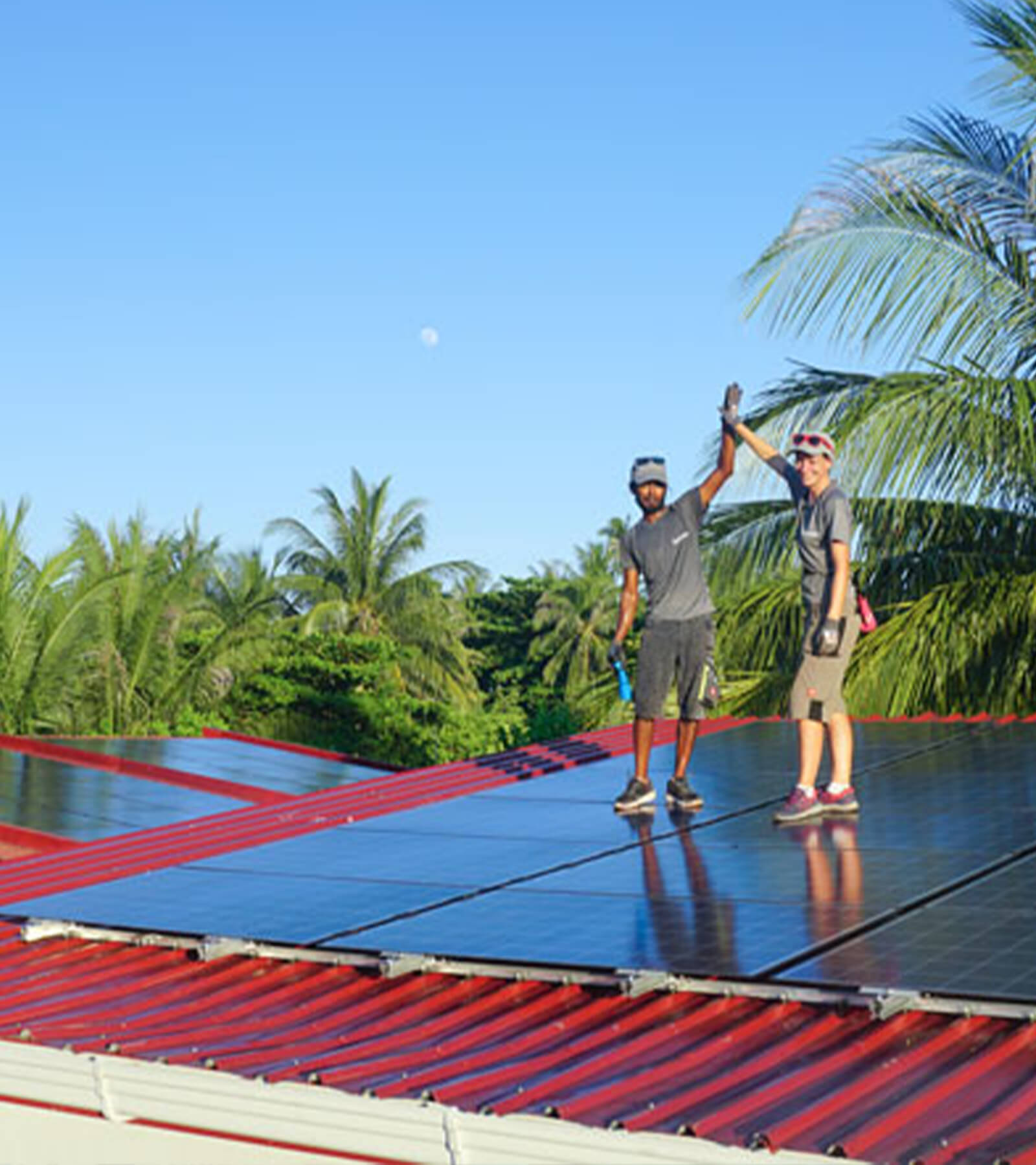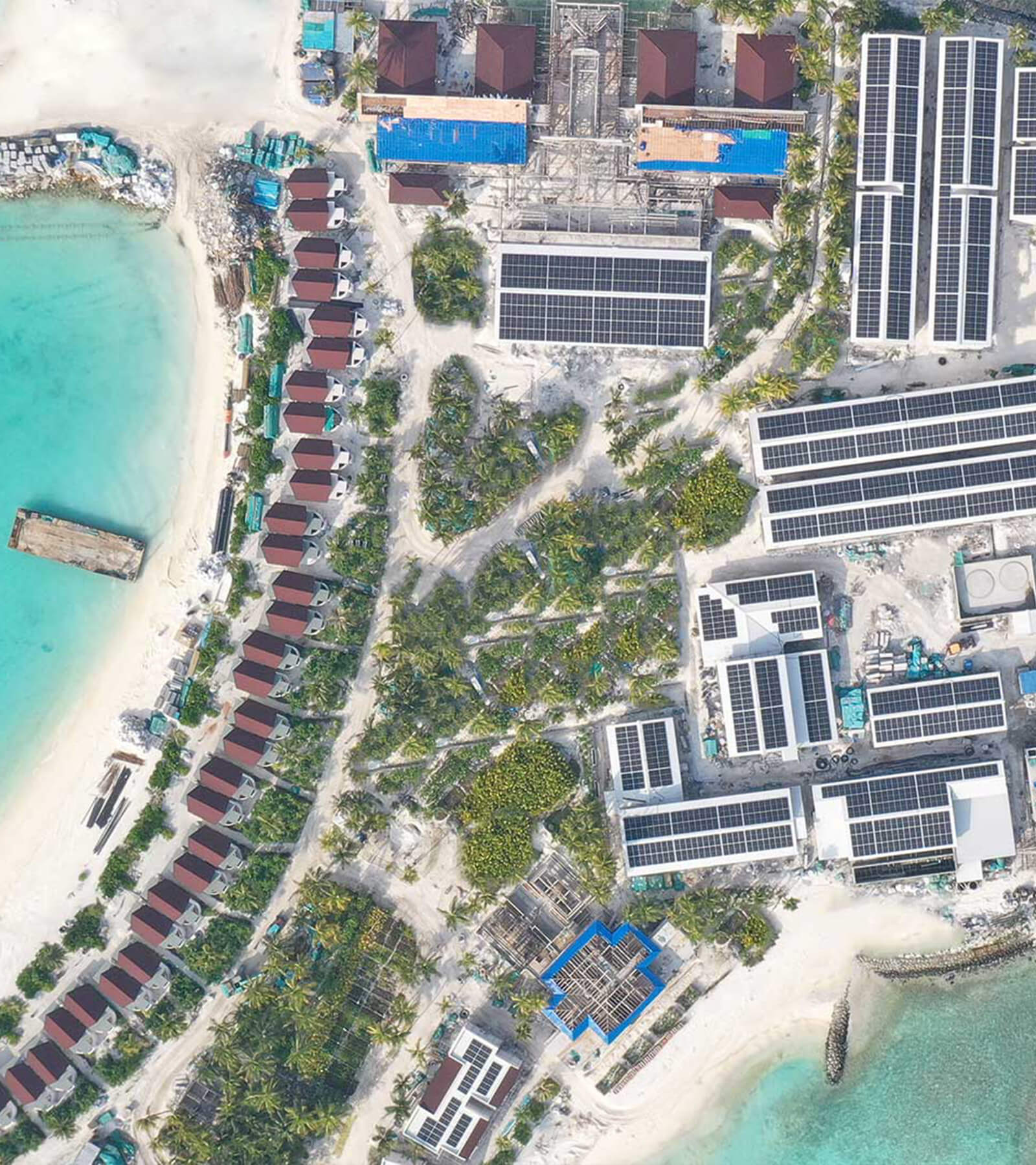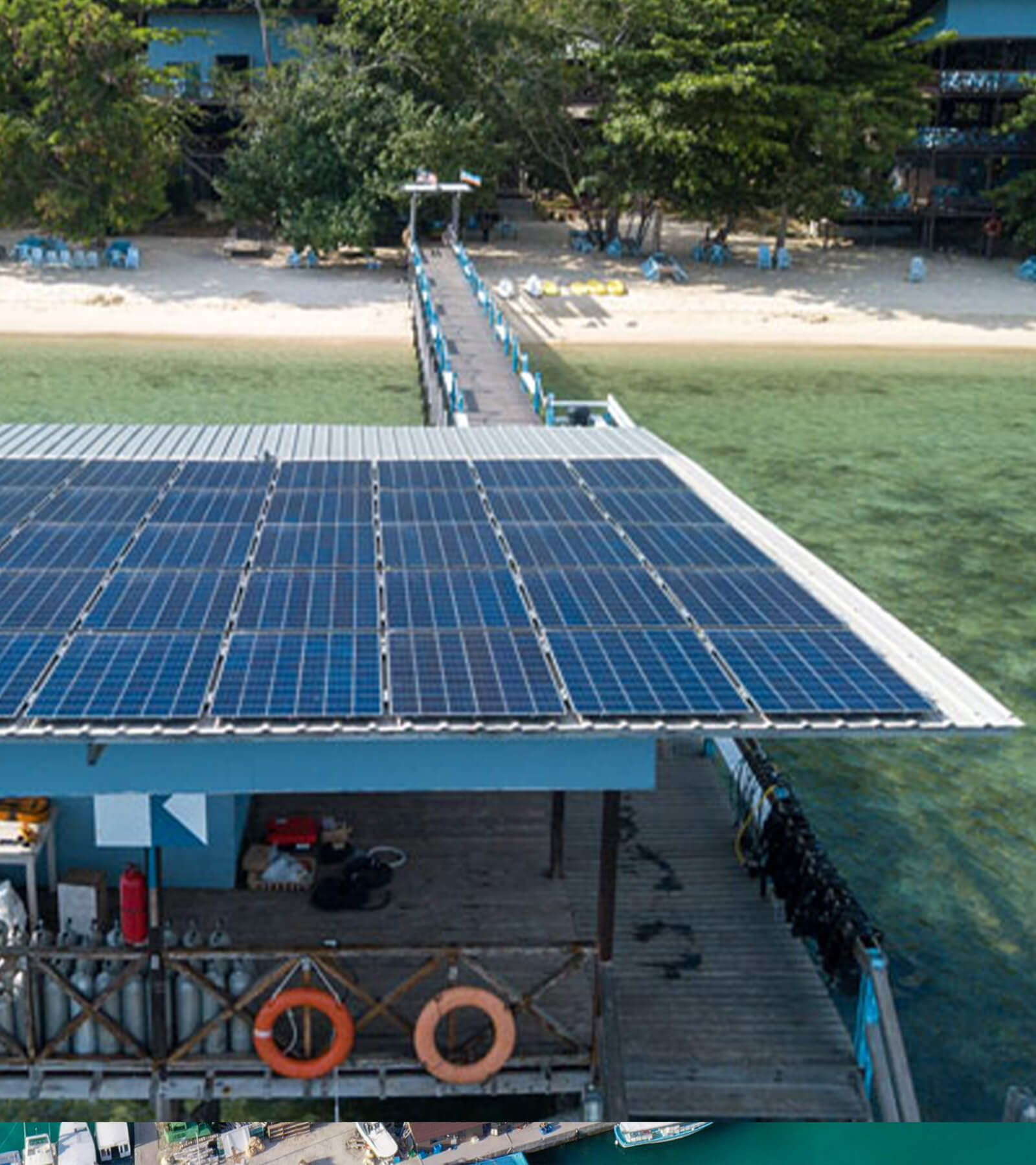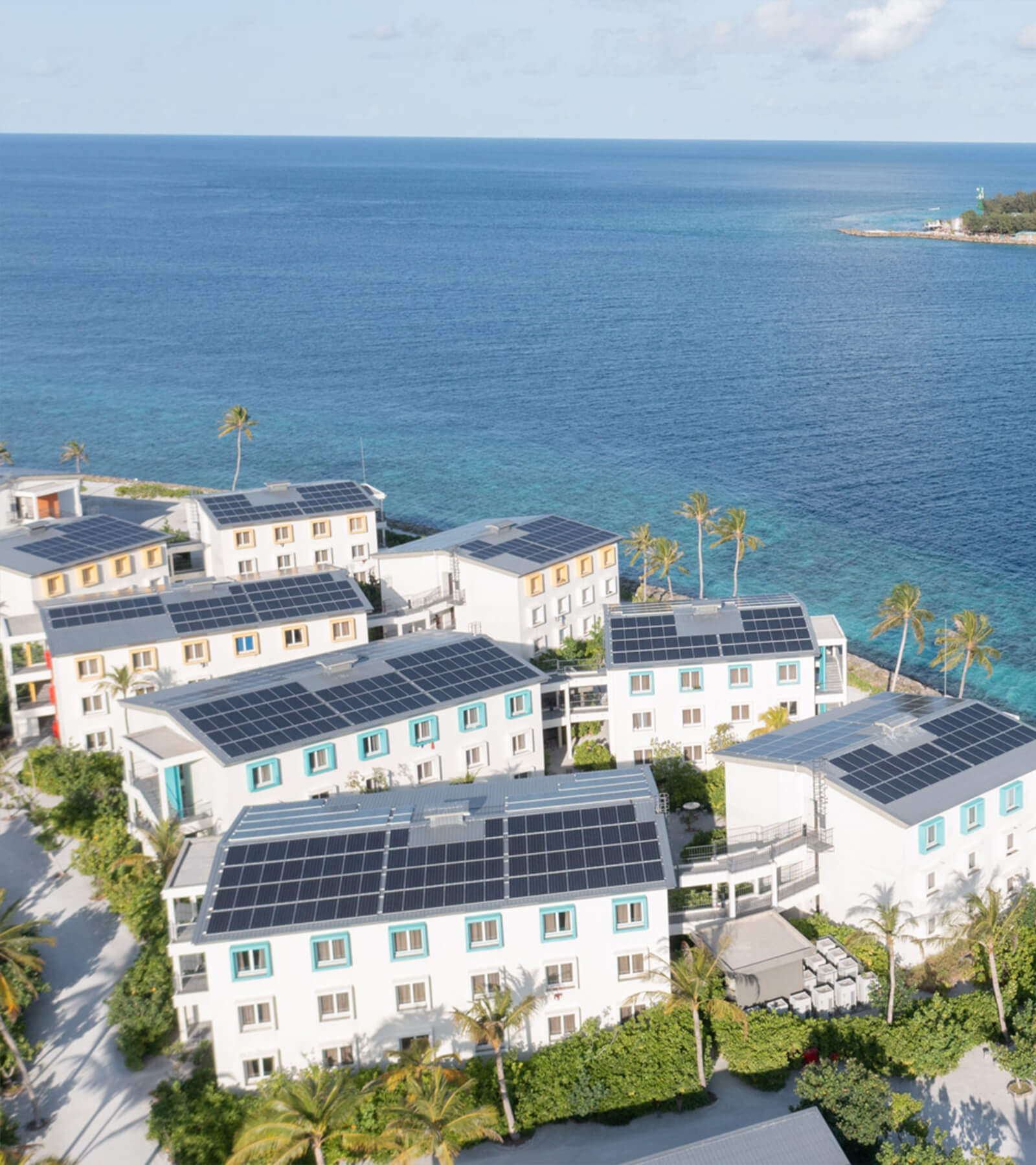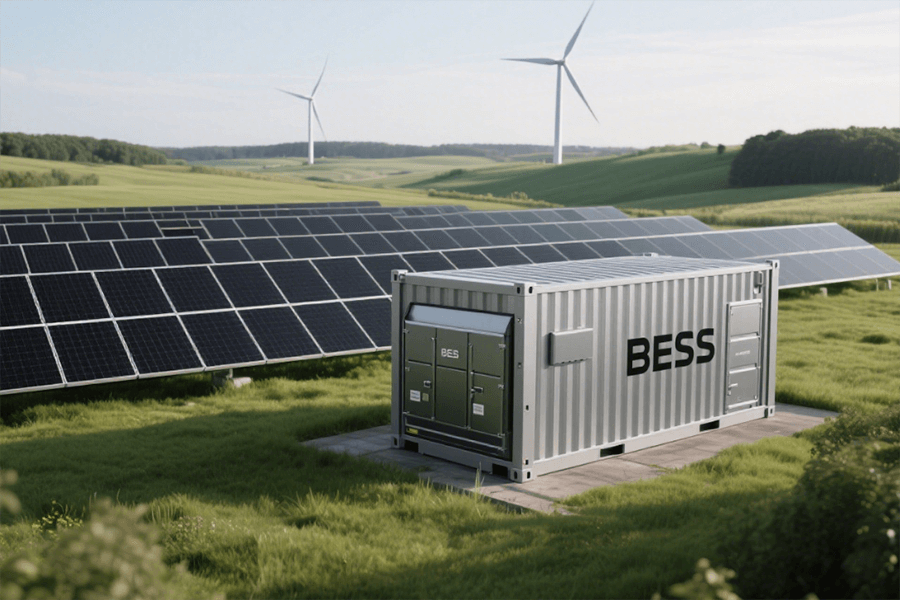
In 2025, Europe stands at a pivotal juncture in its energy transition journey. The urgency to decarbonize and enhance energy security has never been greater, and the continent is not merely aiming to meet its renewable energy targets—it’s accelerating towards them at an unprecedented pace.
The European Union’s 2030 climate and energy framework sets an audacious goal: microgrids are slated to supply 15% of the continent’s total energy demand. To put this in perspective, consider the scale of transformation required:
- Current Landscape: As of 2024, microgrids accounted for just 5% of Europe’s energy mix, according to the latest Eurostat data.
- Growth Projection: Achieving the 15% milestone in five years would mean a tripling of microgrid capacity—a monumental leap that demands innovative solutions.
Enter the Microgrid Battery Energy Storage System (BESS) Container—the unsung workhorse behind this ambitious vision. Often overlooked but indispensable, these containers function as the “Swiss Army knives” of energy autonomy. Compact yet incredibly powerful, they are engineered to provide seamless energy storage and distribution, ready to stabilize grids and ensure uninterrupted power supply whenever needed.
But what exactly makes these BESS containers so crucial to Europe’s energy future? Let’s delve into their five key capabilities—backed by concrete data and industry insights, free from any hyperbole.
The BESS Container: Modular Scalability (Because One Size Never Fits All)
Imagine microgrids as a custom-built pizza, where BESS (Battery Energy Storage System) Containers serve as the versatile toppings—effortlessly added, always enhancing the overall experience. This analogy perfectly captures the essence of BESS Containers’ modular design, a revolutionary approach that empowers communities to initiate their energy storage journey on a small scale and seamlessly expand as their energy demands evolve.
The modularity of BESS Containers lies at the heart of their appeal. These containers are designed as self-contained units, each housing a pre-configured battery system with a specific energy storage capacity. This design allows for a high degree of flexibility, enabling users to mix and match containers to create a storage solution that precisely meets their needs. Whether it’s a small rural community looking to power a few homes or a large industrial park with significant energy requirements, BESS Containers can be tailored to fit the bill.
To illustrate the practical implications of this modular scalability, let’s consider two real-world scenarios:
| Scenario | Initial BESS Configuration | 2-Year Expansion Plan | Key Benefit Highlights |
|---|---|---|---|
| Rural French Community | – 2 x 1 MWh BESS Containers- Ideal for basic village needs | – Addition of 3 more 1 MWh Containers- Total capacity: 5 MWh | – Cost Efficiency: 40% lower upgrade costs compared to fixed systems- Adaptability: Responsive to growing population and energy demands |
| Industrial Park (Germany) | – 3 x 2 MWh BESS Containers- Meeting initial industrial load | – Installation of 5 additional 2 MWh Containers- Total capacity: 16 MWh | – Swift Expansion: New units installed in just 2 days- Minimal Disruption: Continuous operation during expansion |
The significance of this flexibility extends far beyond mere convenience—it is a critical factor in the success of microgrid projects across Europe. According to the European Commission, a staggering 70% of successful microgrid initiatives attribute their growth and adaptability to modular storage solutions like BESS Containers. This statistic underscores the pivotal role these containers play in driving the widespread adoption and long-term viability of microgrids.
In essence, the modular scalability of BESS Containers offers a future-proof solution for European communities and industries seeking energy autonomy. By providing the ability to start small, grow organically, and adapt to changing circumstances, these containers are not just a storage option—they are a strategic investment in a sustainable, resilient, and self-sufficient energy future.
Grid-Forming Capabilities: The 10ms Hero
Lightning-Fast Frequency Response
Grid stability is the linchpin of modern energy infrastructure—any deviation can trigger a cascading failure. A mere 0.5 Hz frequency dip can cascade into system-wide shutdowns, yet microgrid BESS (Battery Energy Storage System) Containers redefine responsiveness. With a reaction time of 10 milliseconds—faster than a Formula 1 car’s acceleration from 0 to 60 mph—these systems act as the unsung heroes of grid resilience.
Data from a 2024 ENTSO-E study (available here) quantifies their impact: during severe storms, microgrids equipped with BESS Containers maintained frequencies within the critical 49.9–50.1 Hz range. In contrast, conventional grids without such technology experienced deviations as extreme as 49.2 Hz, risking equipment damage and widespread outages. This real-time frequency regulation ensures that sensitive loads—from data centers to medical facilities—remain operational under stress.
Off-Grid Resilience: 4 Hours of Lifesaving Power
When the main grid fails, BESS Containers transform into essential lifelines. Consider a rural Swedish hospital during a Scandinavian blizzard: its 2 MWh BESS unit seamlessly powers critical infrastructure, including:
- 12 Intensive Care Unit (ICU) beds, supporting patients on life support systems
- 3 operating rooms, enabling emergency surgeries to continue
- Vaccine refrigeration units, safeguarding temperature-sensitive medical supplies
This provides 4 hours of uninterrupted power—sufficient time to stabilize patients and restore grid connectivity. In comparison, traditional diesel generators would consume €12,000 in fuel for the same duration and emit 1.2 tons of CO₂, highlighting both the economic and environmental advantages of BESS solutions. The table below contrasts key metrics:
| Backup Solution | Fuel Cost (4 hours) | CO₂ Emissions | Response Time |
|---|---|---|---|
| BESS Container | €0 (once installed) | 0 tons | Immediate |
| Diesel Generator | €12,000 | 1.2 tons | 30+ seconds |
These capabilities underscore how BESS Containers are not just energy storage devices, but strategic assets for enhancing European energy autonomy and resilience.
Policy Alignment: Subsidies That Pay You to Save the Planet
In the race towards a sustainable energy future, European governments have recognized the transformative potential of Battery Energy Storage System (BESS) Containers within microgrid ecosystems. These compact yet powerful energy storage solutions not only optimize renewable energy utilization but also play a pivotal role in reducing carbon emissions. As a result, policymakers across the continent have rolled out a suite of attractive incentives designed to accelerate the adoption of BESS Containers, aligning economic benefits with environmental stewardship.
National Incentive Programs
Several European countries have implemented targeted subsidy schemes to encourage the integration of BESS Containers in microgrid setups:
| Country | Incentive Details | Example Impact |
|---|---|---|
| United Kingdom | A generous £1,500 per kilowatt subsidy for microgrids that incorporate energy storage systems. | In Cornwall, a forward-thinking farm harnessed this incentive to install a 30 kW BESS Container microgrid, resulting in savings of £45,000 on the project cost. |
| Germany | A substantial 30% tax credit for microgrids powered by renewable energy sources, applicable to BESS Container installations. | A community-owned energy cooperative in a small German village leveraged the tax credit to recoup 25% of their BESS Container investment within the first year of operation. |
EU-Wide Regulatory Framework
The European Union’s Clean Energy Package represents a significant milestone in the bloc’s energy transition strategy. This comprehensive legislative framework not only sets ambitious targets for renewable energy generation but also mandates that 40% of all microgrids must incorporate energy storage capabilities by 2030. BESS Containers, with their modular design, scalability, and rapid deployment capabilities, are ideally positioned to meet this requirement.
Moreover, these prefabricated, plug-and-play storage solutions offer an additional advantage: they can reduce the often-lengthy permitting process by up to 50%. By streamlining the installation and commissioning phases, BESS Containers enable microgrid projects to come online faster, accelerating the realization of Europe’s energy autonomy and climate goals. For more information on the Clean Energy Package, visit https://energy.ec.europa.eu/topics/energy-efficiency/clean-energy-for-all-europeans_en.
These policy measures not only make BESS Container adoption financially viable for a wide range of stakeholders, from individual consumers to large-scale energy providers, but also reinforce Europe’s leadership in the global transition to a clean energy economy..
Case Study: Norway’s 100% Renewable Island (No Diesel, No Drama)
In 2025, a groundbreaking transformation took place on a remote Norwegian island, all thanks to the deployment of a 5 MWh Battery Energy Storage System (BESS) Container. This technological marvel not only revolutionized the island’s energy landscape but also set a remarkable example for sustainable energy solutions across Europe.
Before the BESS Container
Prior to the installation of the BESS Container, the island was heavily dependent on diesel generators for its energy needs. A staggering 90% of its power requirements were met through diesel, resulting in exorbitant annual fuel costs of €800,000. This heavy reliance on fossil fuels not only strained the local economy but also had a significant environmental impact, contributing to high levels of carbon emissions.
After the BESS Container
The introduction of the 5 MWh BESS Container brought about a paradigm shift. The island achieved an impressive milestone of 100% winter energy autonomy, solely by utilizing stored summer wind and solar energy. This transition marked a major step towards a more sustainable and self-sufficient energy future.
Winter Achievements
The success of the BESS Container was particularly evident during the winter months, from December to February. Here are the key achievements:
- Energy Storage: The system efficiently stored 3.2 MWh of excess summer energy, which was then utilized during the winter when renewable energy generation was lower. This strategic energy storage ensured a consistent and reliable power supply throughout the cold season.
- Environmental Impact: The switch to renewable energy sources led to a significant reduction in carbon emissions. Annually, the island was able to cut carbon emissions by 1,800 tons, which is equivalent to removing 390 cars from the roads. This reduction in emissions not only improved the local air quality but also contributed to global efforts to combat climate change.
- Economic Benefits: The reliable power supply provided by the BESS Container had a positive impact on the local economy. A local fish processor, for instance, was able to expand its operations, creating 12 new jobs in the process. The consistent power supply was crucial for the fish processor’s cold storage facilities, enabling them to store and process fish more efficiently.
This case study from the Norwegian island serves as a powerful testament to the potential of BESS Containers in driving European energy autonomy. It showcases how innovative energy storage solutions can break the cycle of fossil fuel dependence, reduce environmental impact, and stimulate local economic growth.
Deployment Checklist: Avoiding Energy Facepalms
Installing a BESS Container isn’t rocket science, but skipping these critical steps could lead to costly setbacks and performance shortfalls. Here’s a detailed breakdown of what you shouldn’t overlook:
- Certifications: The Golden Standard for Reliability
When deploying BESS containers, especially in offshore or harsh environments, certifications are non-negotiable. The DNV-ST-0528 certification stands out as a benchmark for safety and reliability. This certification ensures that your BESS container can withstand extreme conditions, such as salt spray corrosion typical of coastal and offshore installations, and high-velocity winds of up to 100 km/h. Think of it as the ultimate “weatherproof jacket” for your energy storage system, safeguarding it against the elements and ensuring long-term functionality. You can find more details about the certification here.
- Climate Matching: Tailoring to Local Conditions
One size does not fit all when it comes to BESS containers. Different regions have unique climate requirements that must be considered to optimize performance and longevity.
- Hot Climates: In countries like Spain, where temperatures can soar, heat-resistant LiFePO₄ batteries are the ideal choice. These batteries are designed to operate efficiently even at high temperatures, with a maximum operating limit of up to 55°C. They offer enhanced thermal stability, reducing the risk of overheating and extending the battery lifespan.
- Cold Climates: In contrast, regions like Finland, with its frigid winters, demand cold-weather battery models. These specialized batteries are engineered to start up and function properly even at extremely low temperatures, down to -25°C. They incorporate features such as built-in heating systems and cold-resistant electrolytes to ensure reliable performance in sub-zero conditions.
- EMS Integration: Unleashing Cost Savings
Integrating your BESS container with a smart energy management system (EMS) is a game-changer. An advanced EMS enables you to optimize your charging and discharging cycles based on real-time energy market conditions. By scheduling charging during low-tariff hours, typically during off-peak times of the day, you can significantly reduce your operating costs. In fact, studies have shown that proper EMS integration can lead to cost savings of up to 15%. This not only improves the economic viability of your BESS investment but also enhances the overall efficiency of your energy storage operations.
Maxbo Solar: Your BESS Sidekick
At Maxbo Solar (www.maxbo-solar.com), our commitment goes beyond simply providing containers—we’re dedicated to empowering European energy autonomy. Our Battery Energy Storage System (BESS) units are engineered to be the cornerstone of your sustainable energy future, with features designed to meet the highest industry standards and adapt to your evolving needs:
Certified Excellence for European Compliance
Our BESS units come with pre-certification for key EU standards, ensuring seamless integration and peace of mind:
- CE Certification: A testament to compliance with European health, safety, and environmental protection regulations.
- IEC 62133: Rigorous testing for the safety of secondary cells and batteries used in portable applications, guaranteeing reliability and performance.
Uninterrupted Monitoring and Peace of Mind
With our 24/7 remote monitoring capabilities, you can rest assured that your energy storage system is always in optimal condition. Our advanced monitoring technology allows for:
- Real-time data tracking of battery performance, state of charge, and health metrics.
- Proactive alerts and notifications to address potential issues before they impact your operations.
- Remote diagnostics and troubleshooting, minimizing downtime and maintenance costs.
Scalability to Fuel Your Growth
Whether you’re starting small or aiming for large-scale energy storage, our BESS units offer unparalleled scalability, ranging from 1 MWh to 50 MWh. This flexibility ensures that your microgrid can grow with your energy demands, supporting:
- Residential and commercial energy resilience
- Industrial applications requiring reliable backup power
- Integration of renewable energy sources for a more sustainable grid
Proven Track Record Across Europe
With over 45 successful installations across diverse European landscapes, from the sun-kissed Greek islands to the bustling factories of Poland, our BESS units have been tested and proven in real-world conditions. These installations showcase our ability to:
- Adapt to varying environmental and grid conditions
- Deliver customized solutions tailored to specific project requirements
- Provide ongoing support and maintenance for long-term system performance
Let Maxbo Solar be your partner in achieving your 2030 energy goals. With our BESS units, you can take a significant step towards energy autonomy, ensuring a reliable, sustainable, and cost-effective energy future for your community or business.

